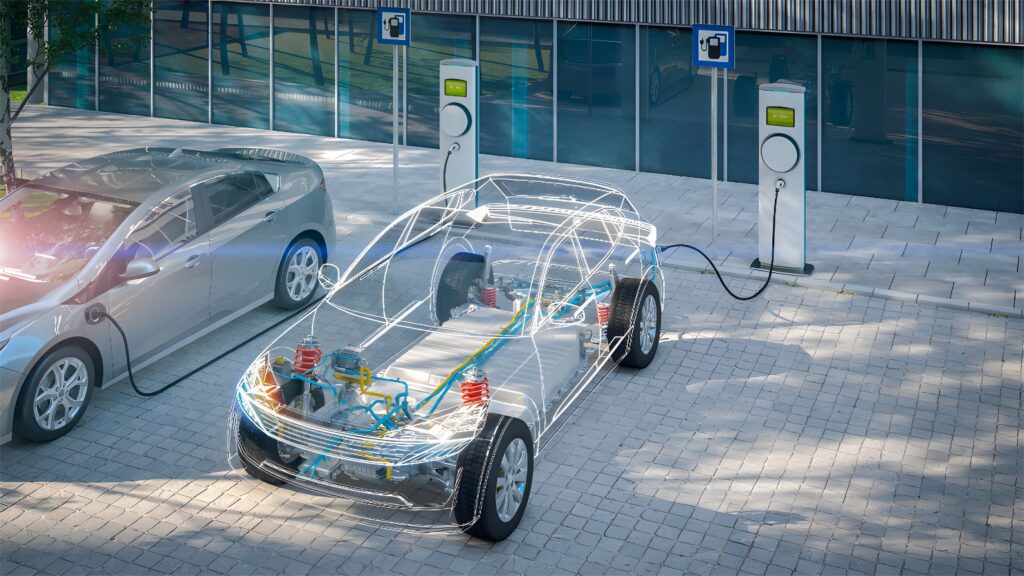As one of the core components of electric vehicles, the electric car battery weight kg is a critical technical parameter. The weight of battery in electric car not only affects vehicle performance and range but also directly influences the design and operation of charging infrastructure. This article will explore the impact of electric car battery weight on industry development and provide practical business insights for professionals worldwide.
1. The Importance of Electric Car Battery Weight
The weight of car battery in kg significantly impacts a vehicle’s range, acceleration, and energy efficiency. Heavier batteries increase the overall electric car weight, reducing energy efficiency, while lighter batteries may sacrifice energy density, affecting range.
The design and installation of charging stations must consider the ev battery dimensions and weight. For example, heavy-duty electric truck battery weight requires higher-power charging stations, while light passenger vehicles can use standard charging equipment. Understanding how much does an ev battery weigh helps optimize the layout and operation of charging infrastructure.
2. Industry Standards for Electric Car Battery Weight
Currently, the weight of electric car batteries typically ranges from 100 kg to 600 kg, depending on battery capacity and vehicle type. For example:Small passenger car battery weight: approximately 100-300 kg,Medium passenger car battery weight: approximately 300-500 kg,Electric truck battery weight: approximately 500-600 kg or more.
The energy density (ev battery weight per kwh) is a key performance metric. Higher energy density means more energy can be stored in the same weight. Currently, lithium ion batteries have an energy density of 150-250 Wh/kg, which is expected to improve with technological advancements.

3. Factors Influencing Electric Car Battery Weight
Battery Type: Different battery types vary significantly in weight. For example:Lithium ion batteries for electric cars: Lightweight with high energy density.Solid-state batteries: Potentially lighter and safer, with future applications.
Battery Capacity (kWh): Larger battery capacity generally means higher weight. For example:40 kWh battery pack weight: approximately 200-250 kg,100 kWh battery pack weight: approximately 500-600 kg
Vehicle Type: Different vehicles have varying battery weight requirements:Passenger cars: Battery weight typically ranges from 100-500 kg.Commercial vehicles: Electric truck battery weight can exceed 600 kg.
4. Industry Trends in Electric Car Battery Weight
Lightweight Design: Advances in materials and manufacturing are driving lightweight battery pack design for electric vehicles, reducing overall weight.
High Energy Density Batteries: These batteries provide more energy at the same weight, extending range. Future technologies like solid-state and lithium-sulfur batteries could significantly improve energy density.
Modular Design: Modular designs allow flexible adjustment of battery capacity and weight, improving resource efficiency and reducing costs.

5. Business Opportunities in Electric Car Battery Weight
Charging Infrastructure Optimization: Understanding how much do ev batteries weigh helps design more efficient charging stations. For example, heavy-duty electric trucks require higher-power charging stations with robust structural support.
Battery Recycling and Reuse: As the EV market grows, recycling and reusing batteries become crucial. Recovering precious metals and materials from old batteries can reduce production costs and environmental impact.
Customized Solutions: Offering tailored battery and charging solutions for different vehicle types meets diverse customer needs and enhances market competitiveness.
6. Future Outlook for Electric Car Battery Weight
Technological Advancements: New materials and technologies will further reduce ev battery weight and significantly improve energy density.Policy Support: Government policies supporting EVs and battery technology will create more development opportunities.
Market Demand: Increasing consumer demand for longer range and better performance will drive the need for lightweight and high-energy-density batteries.

7. How to Choose High-Quality Batteries and Charging Solutions
Reputable Suppliers: Choose ev battery manufacturers or electric car battery manufacturers with a strong reputation for quality and reliability.
Technical Support: Select suppliers offering comprehensive technical support to address operational challenges and improve efficiency.
Customization: Opt for suppliers providing customized solutions to meet specific needs.
8. Call to Action
If you are interested in electric car battery cost replacement, ev battery prices, or electric vehicle battery cost, contact us today for detailed quotes and product information. We offer high-quality batteries, charging equipment, and full technical support to help you enter this promising market. Click here to view our products or contact us for more information.
By understanding how much does a car battery weigh, ev battery weight comparison, and lithium ion battery weight calculator, you can make informed decisions and stay ahead in the evolving EV industry.

